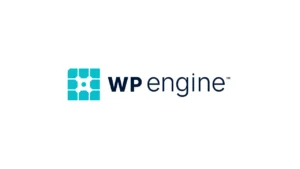
Building your first business website is a critical step in establishing your online presence, but with so many platform options available, it can be overwhelming to choose the right one. Whether you’re considering Wix, WordPress, Shopify, or Webflow, it’s essential to understand the strengths and limitations of each to make an informed decision.
In this guide, we’ll walk through key factors such as cost, simplicity, design flexibility, and integrations to help you select the platform that best fits your business needs and goals. Let’s start with the basics of choosing the right website platform.”
Choosing a Website Platform
Selecting the right platform is the cornerstone of your online business presence. It influences not just the initial creation of your website but its long-term growth and adaptability. Here’s how to make an informed choice:
- Evaluate Your Budget:
Start by assessing how much you’re willing to invest in your website. While cost shouldn’t be the sole determining factor, it’s crucial to understand the pricing structure of each platform. Consider initial setup costs, monthly or annual fees, and any additional expenses for plugins or themes. Remember, a platform that might seem cost-effective now could become expensive as your needs evolve. - Consider Usability and Simplicity:
Ease of use is vital, especially if you’re not technically inclined. Look for platforms with intuitive interfaces and straightforward site-building tools. Assess whether you can comfortably update and maintain your site without external help. Also, check if the platform offers pre-designed templates, drag-and-drop editors, and integrated hosting solutions to streamline the website creation process. - Examine the Website Builder and Design Options:
The ability to customize and design your website to match your brand is essential. Investigate the level of customization each platform offers. While drag-and-drop builders provide simplicity, they may limit creative freedom. Ensure the platform allows for growth and changes, such as adding pages, integrating e-commerce, or updating layouts without starting from scratch. - Assess Integration Capabilities:
Your website will need to work with other tools, such as email marketing services, analytics tools, and customer relationship management systems. Check the integration capabilities of each platform to ensure it can seamlessly connect with other software essential to your business operations. - Align with Your Business Needs:
Finally, your choice should align with your specific business needs. For example, if you’re focusing on e-commerce, a platform like Shopify might be more suitable than WordPress due to its built-in e-commerce features. Conversely, if content is your priority, WordPress offers extensive blogging capabilities.
By carefully considering these factors, you’ll be better equipped to choose a website platform that not only meets your immediate needs but also supports your business as it grows.
Choosing a Hosting Platform for Your Website
If you decide to go with WordPress as your website platform, the next crucial step is selecting the right hosting service. Unlike hosted solutions like Wix or Shopify, WordPress requires you to choose a separate hosting provider. Here’s how to make an informed decision:
1. Types of Hosting: There are four main types: shared, VPS (Virtual Private Server), dedicated, and managed WordPress hosting. Shared hosting is budget-friendly but may lack in performance. VPS provides a good balance between cost and control, while dedicated hosting offers top-notch performance for high traffic sites. Managed WordPress hosting, though more expensive, provides comprehensive support and optimization for WordPress.
2. Assess Your Needs: Reflect on your site’s requirements – such as expected traffic, storage needs, and technical expertise. For a small blog, shared hosting might suffice, but e-commerce or high-traffic sites might need the robustness of VPS or dedicated hosting.
3. Performance and Reliability: Your host’s performance directly affects your site’s user experience and SEO. Prioritize hosts with fast load times and high uptime scores.
4. Support Quality: Especially if you’re new to WordPress or hosting in general, having access to responsive, knowledgeable support can be invaluable. Look for providers offering 24/7 support via phone, chat, or email.
5. Security Measures: Security is non-negotiable. Choose hosts that provide regular backups, updates, and advanced security features to protect your site from threats.
6. Price Considerations: Compare the pricing plans of different hosts, looking beyond just the initial offers to the renewal rates. Also, check for any hidden fees and the refund policy.
7. Recommendations: While there are many hosting services available, some notable ones include WPEngine for managed WordPress hosting, Bluehost for new users, and HostGator for those seeking a balance between cost and features. For more control and scalability, DigitalOcean is an option, but it requires more technical knowledge.
Platform Capabilities & Integrations
As a marketer, having a platform that provides me with the ability to customize and make multiple changes is a big deal. It is essential to ensure that the platform supports my SEO efforts and enables me to track the activities taking place on my website.
While many platforms claim to prioritize SEO, their level of customization varies. There are other limitations as well which prevent integrations working at 100% or allowing code customization.
For example, during the time of writing this article, Shopify doesn’t allow you to customize it’s checkout page “checkout.liquid” unless you are on the Shopify Plus plan. So if you are looking at advanced tracking for analytics, you are unable to edit the code. There can be workarounds but will still not provide all capabilities you might be looking for.
With WordPress.org, since I have full access to the code, I can make any changes I want. It also offers a vast plugin directory where there are multiple tools to choose from that can help in multiple areas.
Conclusion
When wrapping up, remember that picking your website’s platform and where it lives (the hosting part) are big deals. These choices are super important because they help your website grow with your business.
Sure, things like picking a domain name or figuring out your email marketing are also part of the mix, but they’re kind of like choosing what sneakers you’re wearing on a hike; they’re important but not as crucial as making sure you have the right map and a good backpack. You can switch your shoes easier than you can change your path once you’ve started.
So, think of this guide as your map for the web-building journey. The main things to keep in mind are where you’re starting and where you can sleep safely at night – in website terms, that means your platform and hosting. If you get these right, you’re setting up a super cool online space that can grow and change just as fast as you can.
Remember, making a website isn’t just for now; it’s for the future too. The choices you make should help your online space grow right alongside your business. Keep your future goals in mind and you’ll be set!





